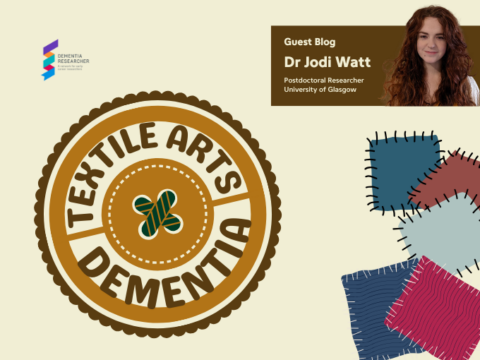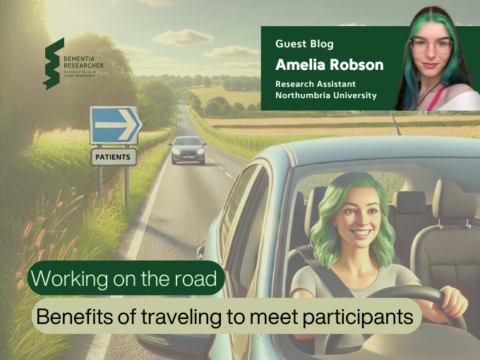I know how you’re feeling… you had big plans for 2022! Resolutions were written, productivity was projected, research was to be researched. But now January has flown right by, dry-Jan has gone down the drain and you haven’t quite managed to stick to all of those resolutions… Well, don’t despair! There’s time to turn it at all around, the year is still very young and the goals that you have set are meant for you to achieve. For today’s blog I am going to provide my top 5 tips for boosting your productivity, which will in turn hopefully help you to get back on track and smash out those research goals. All of my tips are inspired by evidence-based findings – so I will provide links to the original materials too. Happy listening and remember – YOU GOT THIS!
 Establish a sleeping pattern
Establish a sleeping pattern
It’s easier said than done, and don’t I know it. Our sleeping patterns were all disrupted by what felt like an extended Christmas holiday period, not to mention working from home life! But establishing a healthy sleeping pattern is super important for maximising your day. Nobody can be productive when they’re tired but fighting the cosiness of your bed is a daily challenge too. Dr Andrew Huberman, a neuroscience professor at Stanford University constantly advocates the importance of sleeping, claiming that it is the foundation of mental and physical health, and all aspects of human performance. Some things that he recommends you do to improve your sleep include exposing yourself to sunlight as early as possible in the day (ideally within 30-60 mins of waking), waking up at the same time each day, avoid caffeine within 8-10 hours of bedtime and keeping your bedroom cool and dark, avoiding bright lights between 10pm – 4am. So yes, that means stop that night-time doom scrolling! More details can be found at Hubermanlab.com
 Make time for the things you enjoy
Make time for the things you enjoy
As that list of tasks gets longer, and the post-Christmas work emails have now been responded to, it feels like there is no time for anything other than work and chores – right? Even though there may be days that get like this, sparing some time – even just a little to do something you WANT to do, rather than NEED to do can do so much to boost your happiness and encourage you to feel more positive. Allowing yourself some time in this way will help you to reset and refresh, enabling you to tackle that task list with newfound energy! Happiness and positivity are two of the key themes that Dr Rangan Chatterjee, a GP turned mindset podcaster, discusses frequently within his work. He says that even as little as 5 minutes a day doing something that you enjoy can be enough to spark the feel-good factor. Find out more in his new book: Happy Mind, Happy Life.
 Get healthy
Get healthy
Your physical health is so important and has massive hidden impacts on your mental health and well-being, in turn impacting your ability to work and function. This isn’t an easy step, but it can be a fun one. NHS UK recommends that adults aged 19 to 64 should do some type of physical activity every day, aiming to do at least 150 minutes of moderate intensity or 75 minutes of vigorous intensity activity a week. A sure-fire way to get this goal going is the ever-so popular couch to 5K app, which provides a 9-week plan to achieving a 5K run. And getting healthy is multifactorial – it’s not just the exercise we do, but also the food that we eat. Nutrition is super important to functionality, and there are masses of ongoing evidence regarding the benefits of intermittent fasting. Dr Rahul Jandial, an American neurosurgeon, discusses such benefits in his book, “Life Lessons from a Brain Surgeon”. He recommends intermittent fasting twice a week for 16 hours. This process, he says, forces your body to burn its fat reserves into ketones – a backup energy source that can help improve cognition, stimulate the connections between neurons and even possibly prevent neurodegeneration! And I mean, skipping breakfast just twice a week is surely a small cost to pay…The Couch to 5k App can help, Book by Dr Rahul Jandial.
 Get organised!
Get organised!
I’m like a broken record that can’t stop singing the organisation tune… so played out! But it’s so so key. Sometimes this is the hardest step – life admin is so draining, and it feels counterproductive as you’re not attacking a fundamental task. But investing some energy and time to get organised can really help with your productivity and to keep you on track to achieving your goals. It’s important to be realistic when mapping out your goals, e.g., “complete data analysis” may be a little too broad but breaking this down into manageable tasks can really help guide your step-by-step actions. Like… “download updated version of STATA, convert data set file, re-label variables etc etc”. And here’s how I do it… Behind my screens I have a whiteboard wall where I write out my to-do list. It’s in a place that I can’t miss it, so every morning starts by visibly seeing this list of tasks. I have different coloured pens, that allow me to code the importance of the tasks. Each time I complete a task, I satisfyingly get to wipe it off the board (ahhh… the good stuff!).
 Remember that slip-ups are okay
Remember that slip-ups are okay
In an age where justifying our downtime is the norm, it’s important to remember that we ARE human – and slip-ups are going to happen, and guess what – that’s okay. British journalist, Oliver Burkeman and author of the bestselling book “Four Thousand Weeks: Time and How to Use it”, has spent a large part of his career investigating exactly that – how best to use our time. As detailed in his book, he explains that we as humans are obsessed with our lengthening to-do lists and overfilled inboxes – but there simply just isn’t enough time. Sometimes we need to reject the futile modern obsession with “getting everything done” and learn to embrace our human limitations. The way we as a society have come to think about time is, as he describes, unhelpful but not inescapable – it’s a collective choice that we have made. In this book, he provides readers with a set of tools for constructing a meaningful life while recognising that our flaws and slip-ups are more than okay! Check it out.
That’s it for today – I hope that you have enjoyed this blog and have found some inspiration and a little motivation to get going.
Thanks for listening, Hannah!

Hannah Hussain
Author
Hannah Hussain is a PhD Student in Health Economics at The University of Sheffield. As a proud third generation migrant and British-Asian, her career path has been linear and ever evolving, originally qualifying as a Pharmacist in Nottingham, then Health Economics in Birmingham. Her studies have opened a world into Psychology, Mental Health and other areas of health, and with that and personal influences she found her passion for dementia.

 Print This Post
Print This Post






Thank you, Hannah. Useful tips! 🙂